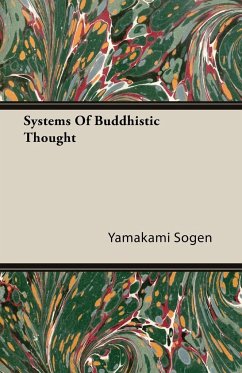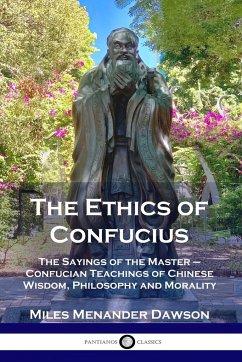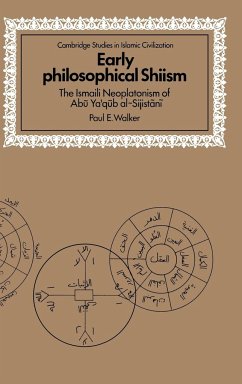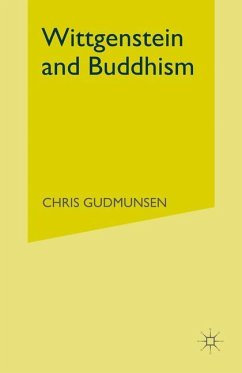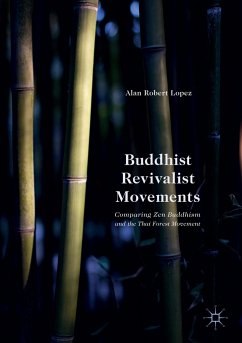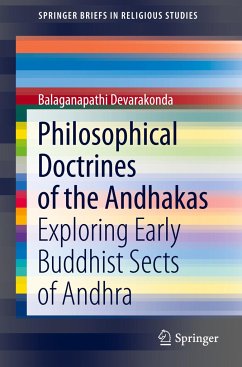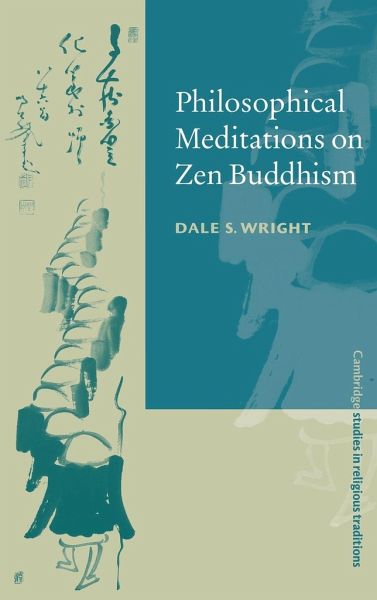
Philosophical Meditations on Zen Buddhism

PAYBACK Punkte
55 °P sammeln!
This book is the first to engage Zen Buddhism philosophically on crucial issues from a perspective that is informed by the traditions of western philosophy and religion. It focuses on one renowned Zen master, Huang Po, whose recorded sayings exemplify the spirit of the 'golden age' of Zen in medieval China, and on the transmission of these writings to the West. The author makes a bold attempt to articulate a post-romantic understanding of Zen applicable to contemporary world culture. While deeply sympathetic to the Zen tradition, he raises serious questions about the kinds of claims that can b...
This book is the first to engage Zen Buddhism philosophically on crucial issues from a perspective that is informed by the traditions of western philosophy and religion. It focuses on one renowned Zen master, Huang Po, whose recorded sayings exemplify the spirit of the 'golden age' of Zen in medieval China, and on the transmission of these writings to the West. The author makes a bold attempt to articulate a post-romantic understanding of Zen applicable to contemporary world culture. While deeply sympathetic to the Zen tradition, he raises serious questions about the kinds of claims that can be made on its behalf.
Table of contents:
1. Textuality: the 'dependent origination' of Huang Po; 2. Reading: the practice of insight; 3. Understanding: the context of enlightenment; 4. Language: the sphere of immediacy; 5. Rhetoric: the instrument of meditation; 6. History: the genealogy of mind; 7. Freedom: the practice of constraint; 8. Transcendence: 'going beyond' Huang Po; 9. Mind: the 'Great Matter'of Zen; 10. Enlightenment: the awakening of mind; Conclusion: Zen in theory and practice.
This book is the first to engage Zen Buddhism philosophically on crucial issues from a perspective that is informed by the traditions of western philosophy and religion. While deeply sympathetic to the Zen tradition, it raises serious questions about the kinds of claims that can be made on its behalf.
This book develops a contemporary interpretation of Zen Buddhism.
Table of contents:
1. Textuality: the 'dependent origination' of Huang Po; 2. Reading: the practice of insight; 3. Understanding: the context of enlightenment; 4. Language: the sphere of immediacy; 5. Rhetoric: the instrument of meditation; 6. History: the genealogy of mind; 7. Freedom: the practice of constraint; 8. Transcendence: 'going beyond' Huang Po; 9. Mind: the 'Great Matter'of Zen; 10. Enlightenment: the awakening of mind; Conclusion: Zen in theory and practice.
This book is the first to engage Zen Buddhism philosophically on crucial issues from a perspective that is informed by the traditions of western philosophy and religion. While deeply sympathetic to the Zen tradition, it raises serious questions about the kinds of claims that can be made on its behalf.
This book develops a contemporary interpretation of Zen Buddhism.





